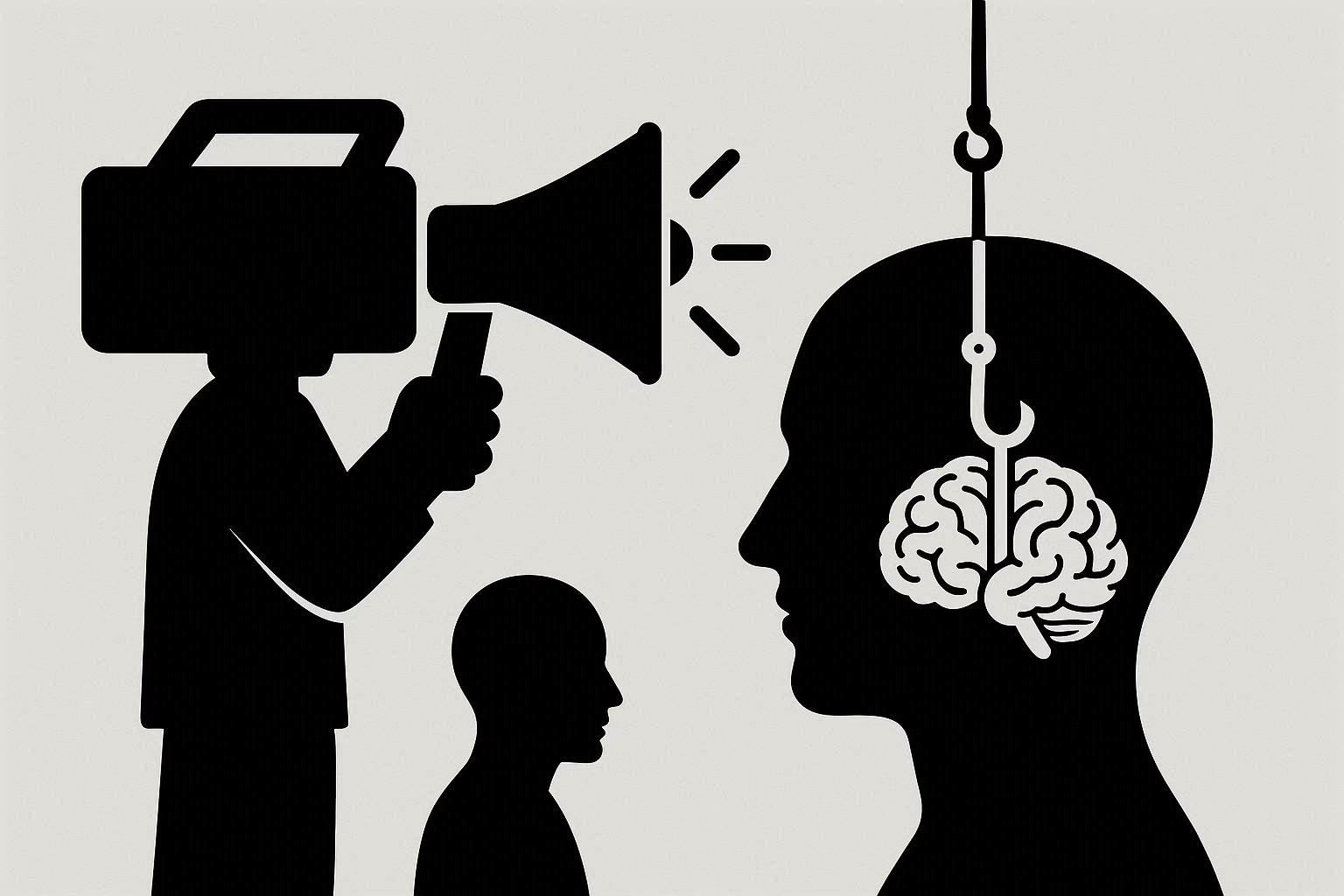Reading Time: 2 minutes
Content
Public Opinion: Introduction
“An alarmist headline, a manipulated photo or an algorithm that decides what you deserve to see: in the digital age, the media are no longer mere informers, but architects of our collective reality. From what we fear to what we want, its influence shapes public opinion and entire societies. ‘But how much of that mental programming are we able to detect?’
Public opinion: mirror or mirage?
The “public opinion” is an elusive ghost: everyone talks about it, but few could define it precisely. It is not the simple sum of individual opinions, but a dynamic phenomenon where perceptions, emotions and interests of power interact. When the media act as catalysts, they influence how we perceive public opinion with narratives that we later adopt.
The 6 secret weapons of the means to mold
- The Art of Distraction (Agenda Setting)
“While the media flooded screens with a political scandal in 2022, 80% of citizens ignored a key educational reform.”
Deciding what you are talking about is deciding what we think about, thus shaping public opinion.
- The colored glass (Framing)
Compare these headlines about the same event:
“Protesters demand labor rights”
“Violent blockades paralyze the city”
The same fact, two opposing realities that influence public opinion.
- Stereotype manufacturers
Series and newscasts that repeat roles: “The dangerous immigrant”, “The greedy businessman”. These archetypes settle in our unconscious and filter how we judge others, directly impacting public opinion.
- The fake news machine
Real Case: In 2016, a fake news about the Pope supporting Trump generated 960,000 interactions on Facebook. Lies travel 6 times faster than the truth.
- Substance Abuse Disorder (Social Networks)
Algorithms enclose us in bubbles where we only see similar opinions. The result? digital crews who believe they live in parallel worlds, thus affecting the formation of public opinion.
- the wall of silence
Why are you silent if you think differently? Fear of social rejection causes many voices to self-censor, giving illusion of consensus in public opinion.
3.
Can we escape the spell?
The media are not neutral: they are arenas where battles for symbolic control are fought. But there are antidotes:
Look for opposing sources on the same topic to form a more complete public opinion.
Distrust visceral emotions: indignation sells, but rarely reports.
Ask yourself: Who wins if I believe this?
“In a world where information is the new gold, the question is no longer “Who is right?”, but “Who controls the story?” True freedom begins when we stop consuming passively and start to actively question public opinion.”



